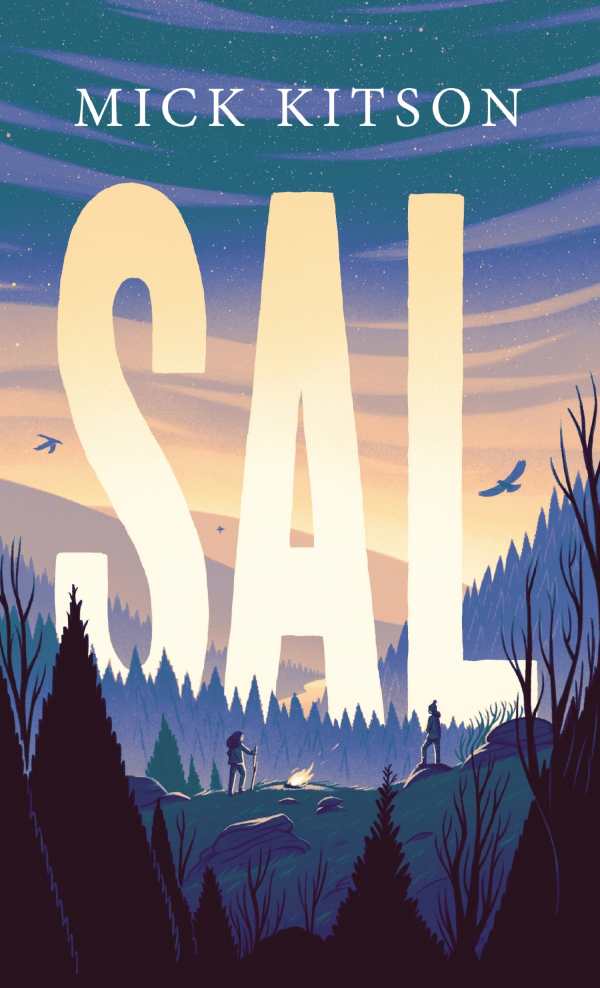Sal
One cold October, thirteen-year-old Sal and her younger half-sister, Peppa, escape from their alcoholic mother and sexually abusive stepfather into the wilds of Scotland, setting up camp in Galloway Forest Park. As the winter advances, they replace their tarp structure with one of bent saplings and shoot rabbits and grouse for food. Sal is well armed with survival skills, but the sisters won’t be able to hide forever.
Sal is a compelling narrator because of her contradictions: she is simultaneously a child and an adult before her time; she is prepared to engage in primitive tasks like creating a shelter, digging a latrine, and skinning a rabbit, but many of these abilities were learned from YouTube videos. That blend of old-fashioned survival strategies and modern technology makes Sal feel like an update of classic children’s stories, while Peppa’s reading of Treasure Island and Kidnapped provides a specific link to her adventure heritage in Scottish children’s literature.
Regional slang and curse words give the novel an edgy charm—Sal refers to Peppa as a “dirty-minded wee bastard.” But there’s also a naïve sweetness to Sal’s thinking. She plans to bring their mother back to the camp when she gets out of rehab and—together with Ingrid, an elderly German woman who also lives in the woods—form an unconventional family. It’s an appealing image of the future, but it completely ignores the nature of addiction, the threat of illness, and the far-reaching effects of the incident that prompted Sal and Peppa to run away.
The call of the simple life in the woods is strong, but technology makes it impossible to completely disappear. Kitson’s novel has an abundance of influences and themes—from flashbacks to Ingrid’s life in East Germany to the belief in a Mother Goddess—that will make it a rewarding read for teens and adults alike.
Reviewed by
Rebecca Foster
Disclosure: This article is not an endorsement, but a review. The publisher of this book provided free copies of the book to have their book reviewed by a professional reviewer. No fee was paid by the publisher for this review. Foreword Reviews only recommends books that we love. Foreword Magazine, Inc. is disclosing this in accordance with the Federal Trade Commission’s 16 CFR, Part 255.

